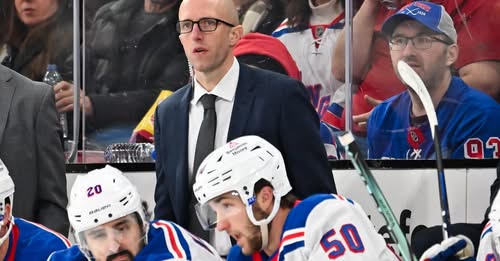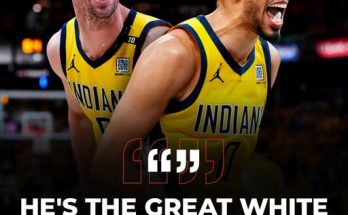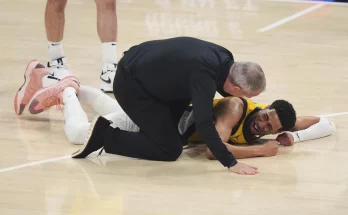The Pittsburgh Penguins have officially turned the page, naming Dan Muse as the 23rd head coach in franchise history. The move marks the end of an era defined by Mike Sullivan, a two-time Stanley Cup champion who held the position since 2015 and etched his name among the most successful coaches in NHL history. Muse steps into massive shoes but arrives with a reputation as a brilliant tactician, a leader of men, and a developmental guru with a sharp eye for the modern game.
For Penguins fans, the announcement represents both a celebration of past success and a hopeful glimpse into the future. Dan Muse is not a household name in the NHL coaching carousel, but he has steadily climbed the ranks of professional hockey through a combination of relentless work ethic, keen analytical insight, and the ability to connect with players of all backgrounds and skill levels. Prior to his appointment as head coach, Muse most recently served as an assistant with the U.S. National Team Development Program and has logged time as a head coach in the AHL with the Chicago Wolves. His experience at every level of the game, including college, juniors, and professional hockey, gives him a well-rounded and adaptable coaching philosophy that many within the Penguins’ organization believe is tailor-made for today’s NHL.
General Manager Kyle Dubas, who has been charting a new course for the Penguins since taking over, made it clear that Muse fits the vision for the franchise’s next chapter. “Dan is one of the most intelligent and forward-thinking coaches in the game today,” Dubas said in a statement. “We believe his ability to relate to players, implement structure, and elevate individual development will serve our team well moving forward.”
Muse inherits a team at a pivotal crossroads. The core of Sidney Crosby, Evgeni Malkin, and Kris Letang remains intact but is undoubtedly aging. The Penguins have missed the playoffs in consecutive seasons and are looking to inject new energy into a group that once dominated the league with speed, skill, and unrelenting competitiveness. Muse’s challenge will be to honor that legacy while also preparing the organization for a transition into a younger, more dynamic era.
That duality has defined much of the discourse around the Penguins for the last few years. How do you maximize the final productive years of your franchise icons while also retooling a roster that has struggled with depth, inconsistency, and injuries? For Muse, the answer will likely be found in his ability to modernize systems, improve special teams, and instill a defensive structure that allows stars like Crosby and Malkin to thrive without being overburdened. His background with the U.S. National Team Development Program is particularly intriguing, as it suggests a deep familiarity with the next generation of talent coming into the NHL and a strong belief in the power of player development.
Muse is also known for his communication skills. Colleagues have praised his meticulous preparation, ability to teach complex systems in digestible ways, and his calm demeanor behind the bench. These traits will be crucial as he works to earn the trust of a veteran locker room while also guiding younger players through the rigors of the NHL season. It’s a delicate balance, but one that Muse seems uniquely equipped to navigate.
His coaching journey began in earnest at the collegiate level, where he served as an assistant coach at Yale University, helping the Bulldogs capture the 2013 NCAA National Championship. That success propelled him into the AHL, and eventually into USA Hockey’s development system, where he was widely credited for refining the tactical acumen and professional habits of some of the country’s top prospects. It’s a track record that speaks to his adaptability, his willingness to innovate, and his passion for teaching.
While Muse has not yet coached at the NHL level, that fact doesn’t concern the Penguins’ front office. In fact, it may be part of the appeal. Dubas and his team are clearly interested in fresh perspectives and new voices—a strategy that mirrors some of the league’s most successful recent coaching hires. Bringing in a coach who is hungry, unafraid to challenge norms, and motivated to prove himself could be exactly the jolt this franchise needs.
Of course, stepping into the role once held by Mike Sullivan won’t be easy. Sullivan led the Penguins to back-to-back Stanley Cup titles in 2016 and 2017 and did so with a no-nonsense style that emphasized pace, possession, and accountability. He was beloved by many of his players and often credited with managing the personalities of a star-studded roster with remarkable poise. But with great tenure comes great expectations, and in recent years, the results simply haven’t been there. A new voice may not only be refreshing—it may be necessary.
Muse will now be tasked with putting his stamp on a team that still boasts elite talent but needs cohesion, direction, and perhaps a new identity. His systems are expected to focus on quick transitions, structured forechecks, and responsible puck management. But more than X’s and O’s, his ability to build culture and foster resilience will be paramount. NHL seasons are long and unforgiving. Success requires not just talent but belief, consistency, and a relentless drive to improve. Those are the very qualities Muse has built his coaching philosophy around.
As for the Penguins fanbase, reactions to the hire have been mixed but largely curious. Muse is not a retread, not a former NHL star turned coach, and not someone with a long list of accolades at the top level. But what he does bring is potential. Real, tangible, exciting potential. If he can galvanize the room, establish trust, and get the most out of both veterans and newcomers, then this hire could be seen in retrospect as a masterstroke.
The upcoming months will be crucial. Training camp will offer Muse his first real opportunity to shape the roster, install systems, and begin establishing his leadership presence. It will also be a chance for him to show fans, media, and players alike that he belongs at this level. Though expectations will be high—as they always are in Pittsburgh—Muse’s focus will likely remain internal: control the controllables, preach preparation, and build one shift at a time.
Crosby, the captain and heartbeat of the franchise, has yet to speak publicly about the coaching change, but his endorsement will be key. As goes Sid, so go the Penguins. If Muse can build a strong rapport with his captain, the transition may be smoother than some expect. Likewise, getting buy-in from Malkin, Letang, and the rest of the veteran core will be essential to Muse’s early credibility.
While questions remain—who will round out Muse’s coaching staff, how aggressive the Penguins will be in free agency, and what roster moves lie ahead—one thing is certain: the Penguins are entering a new chapter. Whether this is a reboot or the beginning of a full-fledged rebuild remains to be seen, but the hiring of Dan Muse signals a willingness to embrace change, take calculated risks, and chase a future that honors the past but isn’t beholden to it.
Dan Muse’s hiring as the 23rd head coach of the Pittsburgh Penguins may not have been the flashiest move, but it just might be the right one. In a league that continues to evolve at breakneck speed, sometimes the boldest choice is the one that looks forward, not backward. For the Penguins, Muse represents more than just a new coach—he represents a new vision, a new culture, and perhaps, a new era of success in the Steel City.



